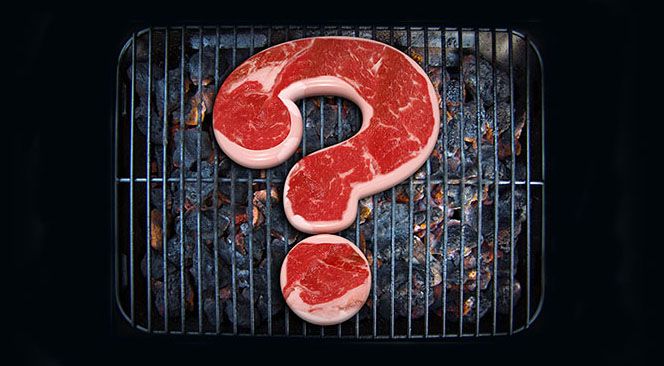The World Health Organization (WHO) guidelines now classify processed meats as a “definite” cause of cancer, while red meats are a “probable” cause.
There has been observational evidence for several decades that red meat is associated with an increased risk of gastrointestinal (GI) cancer, especially of the large bowel: colon and rectum. Why? While we have been able to observe the correlation, we haven’t quite understood why the association exists. We still don’t. A number of facets of diet could be at play: fat, iron stores, hormones in the meat. We have evidence from a “natural experiment” regarding the impact of processing and preserving meats. Until the advent of refrigeration in industrialized countries, stomach cancer was a major form of cancer mortality. However, as refrigeration became increasingly available, stomach cancer declined sharply. Many have attributed this decline in stomach cancer to the decline in preserved-food consumption.
Experimental evidence has been harder to come by. Intervention trials have not confirmed the observational patterns, but many who work in cancer prevention have interpreted the observational evidence as adequate to justify the WHO's guidelines.
What exactly is processed meat?
Processed meat is meat that is not fresh. It has been preserved or transformed in some way. Any number of methods, including curing and smoking or adding preservatives, can be used. Examples of processed meats include hot dogs, salami, bacon and sausage. The cancer link appears to be stronger for processed meat than red meat, although processed meat is a broad category. Some meats labeled “processed” may be much more carcinogenic than others.
How much processed meat is too much?
Let’s be clear—eating the occasional steak or burger doesn’t guarantee a cancer diagnosis is in your future. The evidence points to an 18% increased risk of colorectal cancer for those who consume about 50 mg of processed meat—or about 2 slices of bacon—each day. Less frequent consumption can be assumed to have less risk. The evidence regarding the consumption of meat and processed meat, moreover, needs to be considered in the context of smoking, which kills many times as many people worldwide. One of the best things you can do to help prevent cancer is to stop smoking or never start.
Never miss another Cancer Talk blog!
Sign up to receive our monthly Cancer Talk e-newsletter.
Sign up!Can we stop processing food?
An important question raised by this issue is whether we should stop processing food. In many of the developing countries, refrigeration or freezing of food is not readily available. The public health impact—the risks—of consuming meat that has not been adequately preserved, or processed, in the developed countries may not be trivial. The risks and benefits would have to be more carefully weighed.
The key takeaway?
The recommendation to limit intake of red meat and preserved meat is not new. Overall, limiting the consumption of processed meats is probably not a bad idea. Try substituting other fresh meats, such as chicken or fish, for a few of your red and processed meat meals throughout the week. There is likely to be little harm in such an approach, and it may impart some modest benefits.


